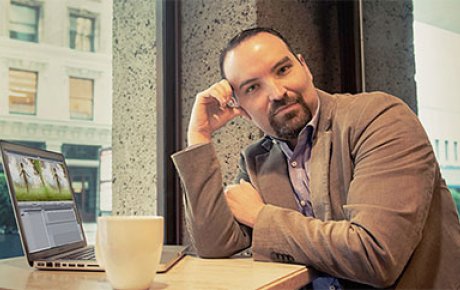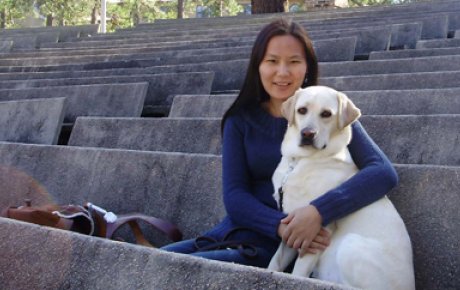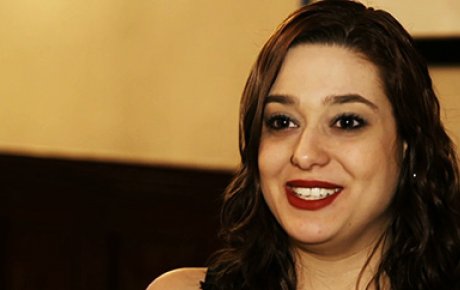412x242_atikhonov_fulbrightforeignlanguageta.jpg
 FLTA from Russia Andrey Tikhonov
FLTA from Russia Andrey Tikhonov
When Andrey first heard about the FLTA program, he felt it was a perfect opportunity for him.
“The idea of sharing my culture in another country sounded both interesting and exciting,” says Andrey. “I visited the website and decided that the … FLTA program would be most beneficial to my future career as an English and German Teacher. Most importantly, the program description stated that the U.S. Department of State exchange programs do not discriminate based on disability.”
Right from the beginning of the process, Andrey found there were many resources at his disposal.
“The Moscow Fulbright staff provided me with an assistant to take the TOEFL (Test of English as a Foreign Language) and covered the travel and hotel expenses of a sighted guide during my interview in Moscow.”
Once Andrey was accepted into the program, the realities of being disabled in a foreign country came to the forefront of his mind.
“How fast would I be able to enhance my independent-living skills in an English-speaking country?” he recalls asking himself. “How would I adapt to my new surroundings? Would I be successful in my work and have a social life on campus?”
However, before he even left Russia, he began to find answers to some of these questions when his future supervisor at Michigan State University (MSU) and the MSU Resource Center for Persons with Disabilities got in touch with him to find out what sort of assistance and technology he would need when he arrived. By the time he landed in the United States, many of these arrangements had already been made.
“… The moment my plane landed … I was surrounded by people ready to offer assistance,” says Andrey. “I was provided with a laptop, screen reading software and access to high speed internet, all of which allows me to work and study effectively.”
Over the course of the next several weeks, Andrey received orientation and mobility training from Michigan State University, including new techniques for using a white cane, and staff helped him learn routes around the campus and around the cafeteria.
“In just two weeks, I felt comfortable in my dorm and could walk independently to the library, bookstore and other buildings on campus,” says Andrey . “By comparison, in Russia, I was able to walk independently only inside buildings.”
Despite the challenges that Andrey has faced having a disability in a foreign country, much of his day-to-day life still focused around the activities of being an FLTA – helping students learn Russian, learning conversational American English and acting as a cultural ambassador on behalf of his country.
“As a person with a disability, I am … able to compare and contrast attitudes towards people with disabilities in Russia and the United States,” explains Anrey. “In Russia, there are still many prevailing stereotypes regarding people with disabilities. Some people don’t realize that people with visual impairments have the same rights as people without disabilities.”
“The ability to walk around the MSU campus independently has given me a new feeling of freedom and confidence that I can accomplish anything.”



